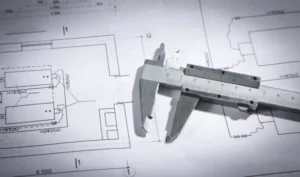The Multilateral Agreement on Investment, or MAI, is a big agreement between many countries that aims to make it easier for companies from one country to invest and do business in other countries. Its main purpose is to create common rules and understandings, promoting fairness and benefiting everyone involved.
Looking back in time, different rules for businesses made international cooperation challenging. MAI was proposed to address this, evolving to adapt to the changing global economy. It strives to establish a fair and stable environment for businesses worldwide, encouraging investment and fostering economic growth.
Key Objectives
1. Promoting Global Investment
The Multilateral Agreement on Investment, or MAI, wants to help companies from different countries invest their money in each other’s places. This is like a teamwork idea where countries work together, making it easier for businesses to grow globally.
2. Facilitating Economic Growth
MAI’s next goal is to help countries become stronger economically. Businesses investing in different countries create jobs and make more products. This helps everyone by making economies bigger and people’s lives better.
3. Enhancing Investor Protections
MAI cares about the people who invest money. It wants to make sure they are protected and treated fairly. By having clear rules and agreements, investors can feel more confident and secure when putting their money into businesses in other countries. This helps build trust and encourages more investments.
Framework and Mechanisms

The Multilateral Agreement on Investment, or MAI, is like a teamwork plan for countries to work together smoothly. It makes rules similar for businesses in different countries, helping them understand and follow the laws easily. If there are disagreements, MAI has ways to talk and find solutions, making sure problems are solved peacefully.
MAI also cares about people who invest money, making sure they are treated well and protected. If there are issues, it helps investors and countries talk and solve problems nicely, making investing safer and better for everyone.
Criticisms and Controversies

Sometimes people have concerns and disagreements about the Multilateral Agreement on Investment, or MAI.
A. Sovereignty Concerns
Some worry that MAI might take away a country’s power to make its own rules. It’s like being concerned that teamwork might make one country follow the same rules as everyone else, even if it’s not what they want.
B. Environmental and Social Impact
People also talk about how MAI could affect nature and society. They are concerned that the rules might not consider the environment or the people enough, impacting how countries and businesses treat the world and their citizens.
C. Opposition from Various Stakeholders
Different groups of people, like workers, small businesses, or activists, may not agree with MAI. They might think it benefits big companies more than regular people. This opposition comes from various sides and concerns about who benefits from the agreement.
Case Studies
Looking at how the Multilateral Agreement on Investment, or MAI, has worked in different places, we find both success stories and challenges. In some instances, MAI has helped countries and businesses team up smoothly, creating more jobs and products.
However, there are times when countries face difficulties, struggling to agree on the rules and work together. It’s like a real-life game where players need to talk and find solutions when things get tough. These case studies show the importance of learning from both successes and challenges to make MAI work better for everyone involved.
Future Prospects

As the Multilateral Agreement on Investment, or MAI, looks to the future, it’s focused on three important things. First, it’s keeping an eye on how the global economy is changing, like following the twists and turns in a game. Second, MAI is open to updating its rules, making sure they stay fair and useful, much like adjusting the rules of a game to keep it enjoyable. Lastly, MAI is staying informed about new trends in international investment, making smart moves to help countries and businesses team up effectively. This way, MAI is ready to face the challenges and opportunities that the future might bring.
Conclusion
In wrapping up the Multilateral Agreement on Investment, or MAI, let’s highlight the main things. First, MAI is like a set of rules that helps countries and businesses work together better. We saw that it can bring success, like creating more jobs and products. But, some challenges needed solving, just like in any game.
Looking ahead, MAI is ready for the future. It will watch how the world’s economy changes, update its rules if needed, and stay informed about new trends in investing. Overall, MAI shows how important it is for countries to cooperate like teammates, making investments fair, helpful, and successful for everyone.
FAQs
#1. What is the Multilateral Agreement on Investment (MAI)?
The Multilateral Agreement on Investment, or MAI, is a global agreement between multiple countries. Its main purpose is to make it easier for businesses from one country to invest in and operate in other countries, promoting international economic cooperation.
#2. How does MAI benefit countries and businesses?
MAI aims to benefit countries by fostering economic growth through increased investments and job creation. For businesses, it provides a framework of common rules, making it easier to navigate and operate in different countries.
#3. Are there any concerns about MAI affecting a country’s sovereignty?
Yes, some critics express concerns about MAI potentially infringing on a country’s sovereignty. They worry that the agreement may limit a nation’s ability to create its own rules and regulations independently.
#4. How does MAI handle disputes between countries or businesses?
MAI has mechanisms in place for resolving disputes peacefully. This involves negotiations and discussions between the involved parties, aiming to find solutions that are fair and acceptable to all.
#5. What does the future hold for MAI?
The future of MAI involves adapting to the evolving global economic landscape. There may be potential revisions and adaptations to the agreement’s rules to ensure continued relevance and fairness. Additionally, MAI will stay attuned to emerging trends in international investment to address new challenges and opportunities.


